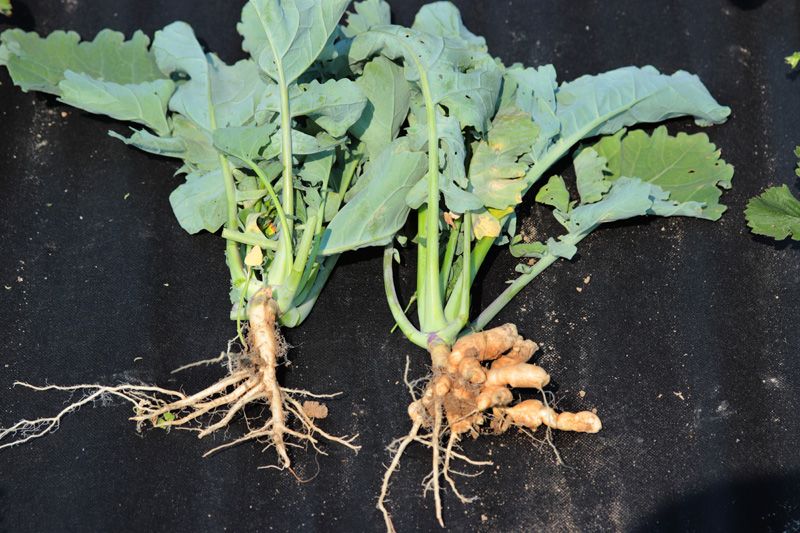
Clubroot – Plasmodiophora brassicae
Clubroot
Common name
Clubroot
Causal agent
It is caused by a parasitic protist and mainly infects the roots.
Scientific name
Plasmodiophora brassicae
Symptoms & Signs
The most common symptom of clubroot is swollen roots with bulbous galls on the secondary roots. It also has yellow leaves, and the overall growth of the plant is stunted. Since the roots are weak, young plants are killed while the older ones do not produce any harvest. The infected roots also show thick-walled spores that prevent the roots from absorbing water and nutrients.
Transmission
It is transmitted to other plants by means of spores. The spores travel through soil, water, wind, insects, or infected tools. Acidic pH of the soil greatly favors the growth of spores.
Time of concern
Early spring to late summer
Common hosts
Cabbage
Cauliflower
Brocolli
Kale
Reddish
Turnips
